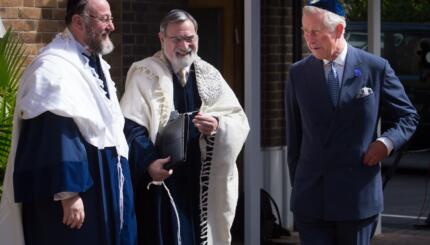Jews have been part of the southern United States since the earliest days of European settlement in America. The following short article points to some of the unique aspects of the southern Jewish experience. Reprinted with permission from The Lonely Days Were Sundays: Reflections of a Jewish Southerner (University Press of Mississippi).
Whenever I have traveled, I have been asked, “What are the differences between Jews in the North and Jews in the South?” That is one of the central questions that any southern Jewish historian must confront.
After living in New York for some years I can offer one answer. I think being Jewish in the South is like being Gentile in New York. What I mean by that is that Jews in the South live as a minority in a majority culture. The schools close on Jewish holidays in New York; they don’t in the South. When my generation of friends in New York was playing stickball in the streets of the Lower East Side, I was picking blackberries in the backyard. They were upwardly mobile; we wanted roots.
In the North the seamstresses and tailors worked to get their children up and out of the ghettos and out to Long Island; in the South the fathers wanted to build businesses that would keep their sons at home. One of the dramas of Jews in the South revolves around the fathers who built businesses for the sons who didn’t want them. The memory of that painful day when I told my father that I wasn’t going into the family business echoed time and again in my mind as I interviewed people of my generation. It is a fundamental drama of Jews in the South.

Help us keep Jewish knowledge accessible to millions of people around the world.
Your donation to My Jewish Learning fuels endless journeys of Jewish discovery. With your help, My Jewish Learning can continue to provide nonstop opportunities for learning, connection and growth.
A few years ago, I heard Dr. Jacob Rader Marcus assert that “no Jew was ever the first person to go anywhere. There was always a cousin or an uncle ahead of him.” I took Dr. Marcus’s statement as a challenge. I vowed to myself that I would find someone who was the first Jew in his community, and so I searched. I found almost no one.
|
|
|
Loaves of challah baked weekly at the Big Sky Bread Company in Birmingham, Alabama. Photo Credit: Bill Aron |
Finally I stumbled onto a man in Scotland Neck, North Carolina, a little crossroads of a town, not the kind of place one would just happen to settle in. I asked him, “Mr. Goldstein, I have been looking everywhere for you. Why is it that you settled here in Scotland Neck, North Carolina?”
“You really want to know?” he asked.
“Yes,” I replied with growing excitement.
“The horse died,” he confessed.
What I found was that, whereas historians and scholars of southern history, like W. J. Cash, saw Jews as aliens in the promised land, we were indeed not aliens, but rooted deep in the soul of southern history.
challah
Pronounced: KHAH-luh, Origin: Hebrew, ceremonial bread eaten on Shabbat and Jewish holidays.



